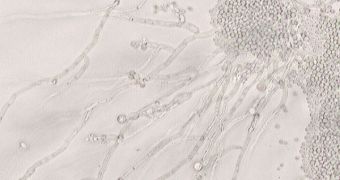Our bodies receive constant support from friendly bacteria in our gut, which help the immune system generate pro-inflammatory immune cells. An increase in the number of these cells could potentially help thousands of people deal with inflammatory bowel diseases. Artificially produced bacteria such as these could further help prevent gastro-intestinal cancer, a serious affliction that is fatal most of the times.
The discovery was published in the Cell Host and Microbe journal by a team of scientists working at NYU Langone Medical Center, led by Dan Littman, M.D., Ph.D., professor of molecular immunology at NYU School of Medicine. Littman, who is also a Howard Hughes Medical Institute investigator, said "It's not the amount of microbial flora but the kind of microbial flora that seems to count," referring to an ever-increasing sentiment inside the scientific community that the intricate relationship between the flora of our intestines and the immune system goes way deeper than first thought.
He also pointed out that some particular bacteria help the body fight infections, while others create the necessary conditions for the infections to occur. Namely, the cytophaga-flavobacter-bacteroidetes (CFB) bacterium is believed to have a very positive effect on the human gut, because it helps digestion and also traps other infectious agents before they can be activated and infect the body.
But most importantly, it suppresses the growth of other types of bacteria that can cause serious damages to the bowel, leading to the appearance of inflammatory bowel diseases (IBD). These account for more than 700,000 Americans getting sick each year, which is a pretty big number. However, doctors now seem to think that by carefully balancing the amounts of bacteria in our bowels, by artificial means, they can control the onset of these diseases.
This can prove to be extremely useful in preventing such afflictions from developing. Bowel diseases are very unpleasant and can sometimes lead to serious complications, especially in the case of gastro-intestinal cancer. By carefully balancing the amounts of friendly bacteria in the gut, novel ways of prevention now stand open to researchers, ones that do not necessarily involve the use of drugs or any other medication.

 14 DAY TRIAL //
14 DAY TRIAL //